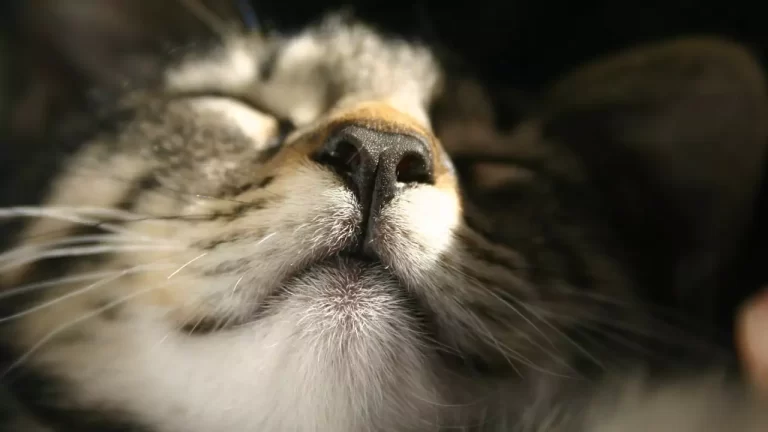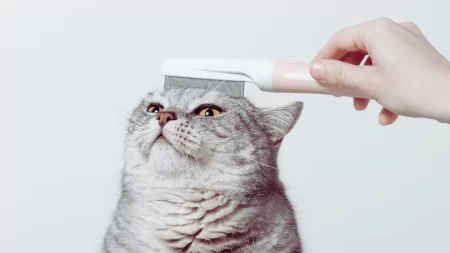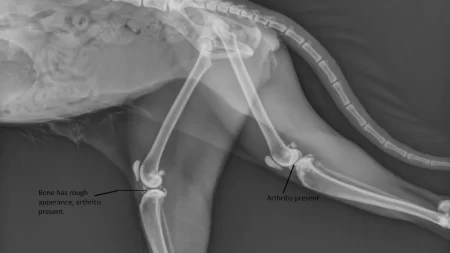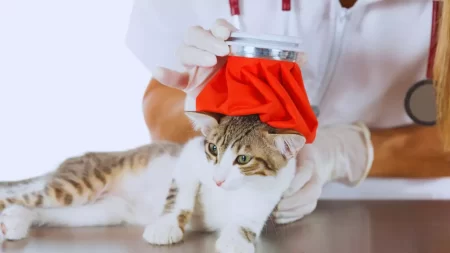A dry nose in cats, while not always a cause for alarm, can be an indicator of various underlying issues. While a quick lick often suffices to restore moisture, persistent dryness warrants closer attention. Understanding the potential causes and knowing when to seek professional help can ensure your feline friend maintains a happy, healthy sniff.
Causes of a Dry Nose in Cats
A cat’s nose is normally moist because they have glands that secrete mucus to keep it lubricated and protect it from dust and bacteria. However, there are several factors that can affect the amount and quality of this mucus, resulting in a dry nose. Some of the most common causes are:
- Dehydration: If a cat is not drinking enough water, or is losing fluids due to vomiting, diarrhea, fever, or kidney disease, their body may become dehydrated. This can affect the production of mucus in the nose, making it dry and cracked.
- Infections: A cat may have a dry nose if they have an infection that causes nasal discharge, such as an upper respiratory infection (a cat cold) or rhinitis (chronic inflammation of the nasal passages). The discharge can dry out the nose and irritate the skin, leading to redness and inflammation.
- Allergies: A cat may be allergic to something in their environment, such as pollen, dust, mold, or perfume, that triggers an immune response in their nose. This can cause sneezing, itching, and swelling, as well as a dry nose.
- Cold weather: When the temperature drops, the air becomes drier and colder, which can affect the moisture level of the nose. A cat may also lick their nose more often to warm it up, which can further dry it out.
- Hyperkeratosis: This is a condition where the skin on the nose becomes thickened and hard, forming a crusty layer that covers the normal tissue. It can be caused by genetics, age, or immune system disorders. It can make the nose look dry, rough, and scaly.
Other Potential Reasons for a Dry Nose
Besides the causes mentioned above, there are some other less common but more serious reasons why a cat may have a dry nose. These include:
- Respiratory illness: A cat may have a dry nose if they have a respiratory disease that affects their breathing, such as asthma, bronchitis, or pneumonia. This can make them breathe through their mouth more often, which can dry out their nose.
- Skin problems: A cat may have a dry nose if they have a skin condition that affects their face, such as ringworm, bacterial infection, dermatitis, or skin cancer. These can cause lesions, ulcers, or scabs on the nose, making it dry and painful.
- Sun damage: A cat may have a dry nose if they are exposed to too much sunlight, especially if they have a light-colored or hairless nose. This can cause sunburn, which can damage the skin and make it dry and peeling.
- Trauma: A cat may have a dry nose if they have suffered an injury to their nose, such as a bite, scratch, or burn. This can cause bleeding, swelling, or scarring, which can affect the normal function of the nose.
- Cancer: A cat may have a dry nose if they have a tumor that grows in or near their nose, such as squamous cell carcinoma, lymphoma, or nasal adenocarcinoma. These can cause obstruction, inflammation, or ulceration of the nose, making it dry and crusty.
When to Be Concerned About Your Cat’s Dry Nose?
A dry nose in cats is not always a sign of a serious problem, but it can be a symptom of one. Therefore, it is important to monitor your cat for other signs that may indicate a health issue, such as:
- Changes in appetite, thirst, weight, or energy level
- Difficulty breathing, coughing, sneezing, or wheezing
- Nasal discharge, bleeding, or odor
- Itching, scratching, or rubbing the nose
- Swelling, redness, or warmth of the nose
- Lesions, ulcers, or scabs on the nose
- Pain or sensitivity when touching the nose
If you notice any of these signs, or if your cat’s dry nose persists for more than a few days, you should seek veterinary care as soon as possible. Your veterinarian will examine your cat’s nose and perform tests to determine the cause and the best treatment.
How to Treat and Prevent Dry Nose in Cats?
The treatment of a dry nose in cats depends on the underlying cause. Some of the possible treatments are:
Providing Enough Hydration
If your cat is dehydrated, you should encourage them to drink more water by providing fresh, clean water in multiple bowls, adding water to their food, or using a fountain or dripping faucet. You can also give them wet food or broth to increase their fluid intake. If your cat is severely dehydrated, they may need intravenous fluids at the vet clinic.
Treating Underlying Causes
If your cat has an infection, allergy, respiratory illness, skin problem, or cancer, your veterinarian will prescribe the appropriate medication or surgery to treat the condition and relieve the symptoms. This may include antibiotics, antihistamines, steroids, immunosuppressants, or chemotherapy.
Protecting Nose from Sun and Cold Weather
If your cat’s dry nose is caused by sun damage or cold weather, you should limit their exposure to these elements by keeping them indoors or providing them with shade and shelter. You can also apply a pet-safe sunscreen or moisturizer to their nose to prevent sunburn and dryness.
Using Natural Remedies
If your cat’s dry nose is mild and not caused by a serious condition, you can try some natural remedies to soothe and moisturize it. Some of the options are:
- Petroleum Jelly: You can apply a thin layer of petroleum jelly to your cat’s nose once or twice a day to keep it moist and prevent cracking.
- Coconut Oil: You can apply a small amount of coconut oil to your cat’s nose to hydrate and heal it. Coconut oil has antibacterial and anti-inflammatory properties that can help with infections and inflammation.
- Aloe Vera: You can apply a dab of aloe vera gel to your cat’s nose to cool and calm it. Aloe vera has soothing and healing properties that can help with sunburn and irritation.
- Chamomile Tea: You can brew some chamomile tea and let it cool, then soak a cotton ball in it and gently wipe your cat’s nose with it. Chamomile tea has anti-inflammatory and antiseptic properties that can help with swelling and infection.
Regularly Checking and Cleaning Nose
You should check your cat’s nose regularly for any signs of dryness, irritation, or injury, and clean it gently with a damp cloth or cotton ball if needed. You should also trim any long hair around the nose to prevent it from getting in the way or causing irritation.







